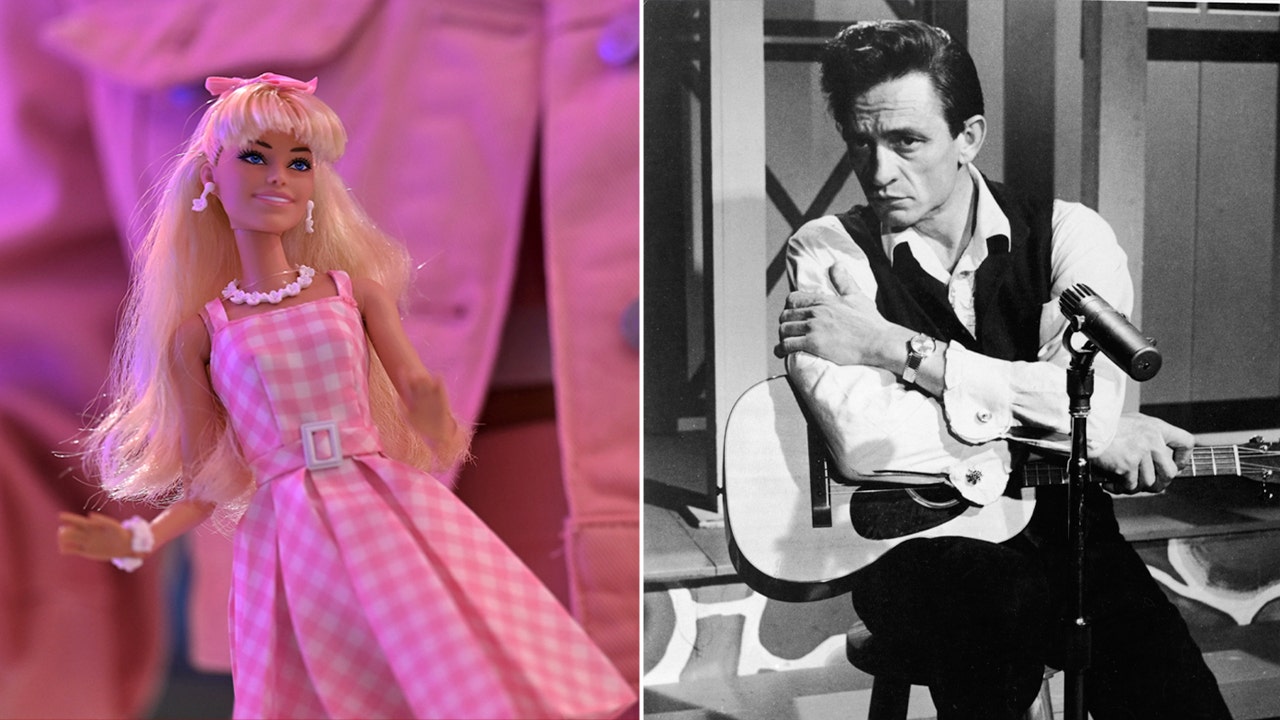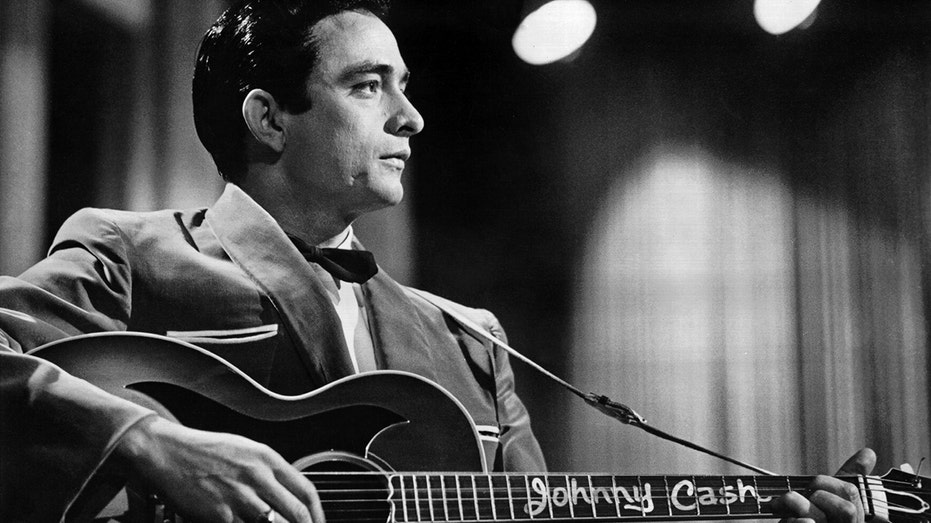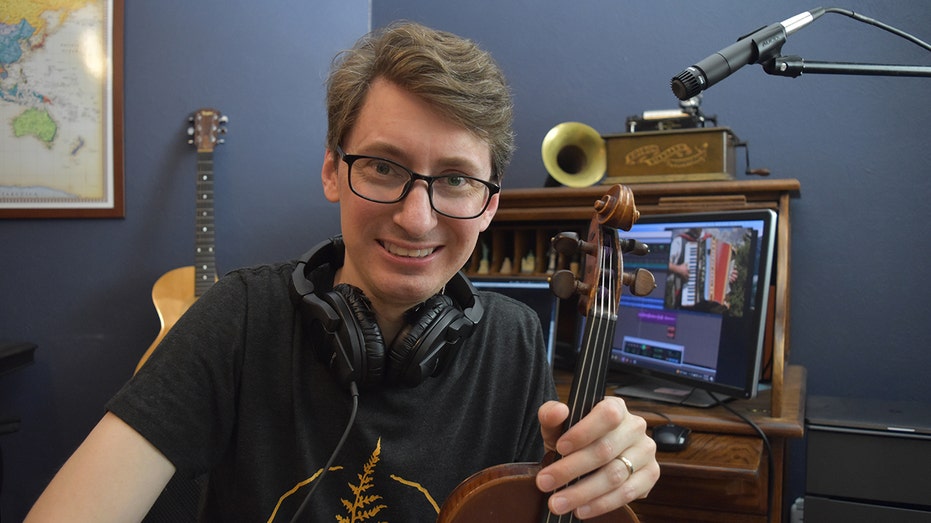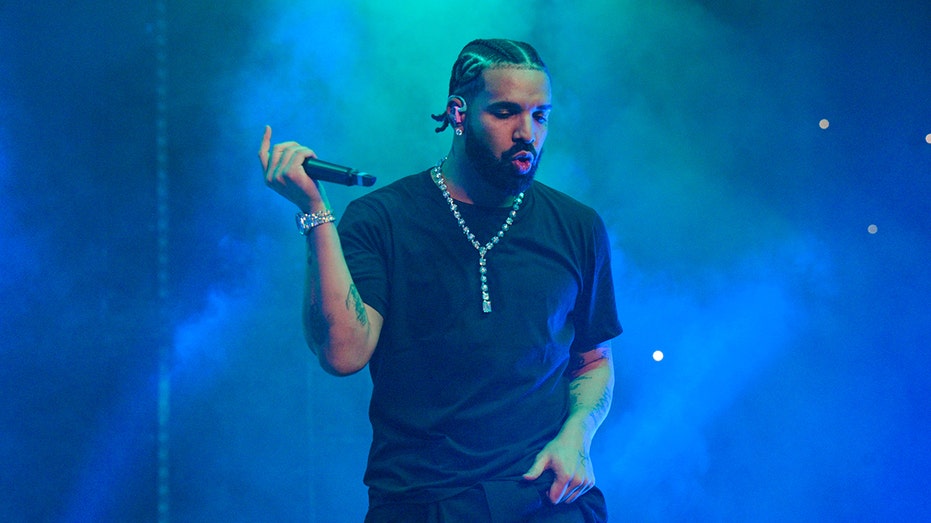Finance
YouTuber ruins Johnny Cash with AI cover of ‘Barbie Girl’ in must-hear-to-believe clip

As Greta Gerwig’s “Barbie” movie is set to hit theaters this weekend, a cover of Aqua’s 1997-hit “Barbie Girl” by the late Johnny Cash is racking up views on YouTube — except that’s not Johnny Cash.
Set to the tune of “Folsom Prison Blues,” the video may sound just like the famous country singer, who died in 2003, but musician Dustin Ballard told Fox Business it’s actually his voice augmented by an AI voice model that’s singing “I’m a Barbie girl, in a Barbie world.”
The video, which also mashes up “Wannabe” by Spice Girls and “Party in the USA” by Miley Cyrus with Cash’s signature style, was posted to Ballard’s channel, “There I Ruined It,” and has racked up more than 650,000 views. Ballard says his channel — conceived “in a moment of musical boredom” during the COVID-19 pandemic — is dedicated to taking beloved songs and “lovingly” destroying them by changing the genre and melody, but keeping the lips synched to the words.
“I often try to think of the most musically inappropriate combination I can,” Ballard said. “I love Johnny Cash, and the lyrics of Barbie Girl seemed about as far from his usual repertoire as I could imagine.”
META RELEASES AI MODEL FOR COMMERCIAL USE, PARTNERING WITH MICROSOFT
Early examples of his work include Nirvana’s “Come As You Are” as an old-fashioned swing tune, or a honky-tonk version of “Every Breath You Take” by The Police.
“I had the idea of taking a music video and completely replacing the audio with my own instruments and singing,” he explained in an email. “These videos often went viral on YouTube and Reddit, so I’ve continued finding ways to ‘ruin’ songs.”
But his latest videos stand out for convincingly resurrecting deceased artists like Cash, Elvis Presley and Frank Sinatra through the power of artificial intelligence.
“AI has been a natural fit for what I’m doing,” Ballard said. He explained that AI is just an “extra step” in his normal video-making process.
AI WILL REPLACE OUTSOURCED CODERS IN INDIA IN 2 YEARS, STABILITY AI CEO SAYS

“I still perform the singing myself, trying to match the cadence of the original artist so that the final result is convincing. It’s not as simple as pushing a button and having the music generated for you,” he told Fox Business. “There is a growing collection of A.I. voice models available (trained on snippets of audio from the artist). I also have a guy in Argentina I can call upon to create a voice for me.”
The AI models Ballard referenced include open-source voice cloning programs like SoftVC VITS Singing Voice Conversion, or paid-for services like Uberduck or Voicify, which have fueled an explosion of fan-made deep-fakes featuring popular songs and famous artists. Search “AI cover” on YouTube and everything from Donald Trump and Joe Biden covering “Sultans of Swing” by Dire Straits to SpongeBob character Mr. Krabs singing Michael Jackson’s “Billie Jean” is a click away.

The technology gives content creators a fun and exciting opportunity to express themselves, but it has also started a debate over legal issues involving intellectual property rights and copyright law.
An AI-generated song simulating Drake and The Weeknd’s voices and styles went viral in April before it was removed from several major streaming platforms over copyright concerns. The song, “Heart on my Sleeve,” spotlighted how copyright law may apply and evolve in response to rapidly advancing AI.
OPENAI CEO SAM ALTMAN HAS DONATED $200,000 TO BIDEN CAMPAIGN
Attorney Bryan Rotella, managing partner and senior general counsel at GenCo Legal in Tampa, told Fox News that copyright law applies not to an artist’s style — distinctive presentational or compositional characteristics, like lyrical prose, distinguishing them from other artists — but to “a specific original work” an artist created.
While artists may imitate or depict other content creators — such as comedians performing impersonations or actors portraying musical icons in films — they can’t “copy an artist’s specific work and publish it as their own,” Rotella said.

However, the attorney explained that copying an artist’s voice with AI may run afoul of the legal “right of publicity,” which aims to prevent the unauthorized commercial use of someone’s identity, including their likeness or other recognizable aspects of their persona, according to Cornell Law School.
But a lawsuit brought over AI-generated voices hasn’t happened yet, and the new technology operates in a murky area of the law. The U.S. Copyright Office is currently examining how AI interacts with the law and has issued guidance requiring applicants to disclose the inclusion of AI-generated content in their works submitted for registration.
Ballard described his videos as protected parody and says that “almost without exception,” the artists he’s featured have reacted positively. He has assembled several talented musicians and formed a band that will soon hit the stage playing his covers around Dallas, Texas.
“Artists like Ed Sheeran, Snoop Dogg and Nicki Minaj have even shared and duetted my songs,” Ballard told Fox Business. “With that said, getting official approvals for streaming these or monetizing them on YouTube is often nearly impossible. AI seems to be an even murkier topic with regard to copyrights.
“Finding the right balance between an artist’s personal identity and the creative expression of others is a debate that plays out right in the comment section of my videos,” Ballard said.
“I don’t have the answer.”
Fox News’ Gabrielle Reyes contributed to this report.
Read the full article here


















